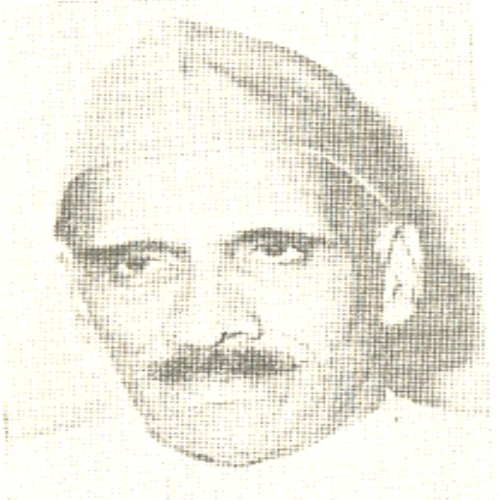Early Life
Hari Vishnu Kamath was born on 13 July 1907 in Mangalore, Karnataka. Here, he completed most of his early education from Canara High School and Government College until he left to pursue further studies at Presidency College, Madras. He then he went on to obtain degrees from the London School of Economics, University College London, and the School of Oriental Studies.
Kamath began his career as a social worker and freelance journalist. In 1930 he qualified for the Indian Civil Service and served under the British Government in various capacities that included: Assistant Commissioner (1931-1932), Additional District Judge (1934-35), Under Secretary (1936) and Additional District Magistrate (1937-38).
Role in India’s Independence Movement
In 1938 Kamath changed sides – he left his ICS career behind to participate in the freedom movement. He joined Subhash Chandra Bose’s Forward Bloc — a leftist-nationalist political party that emerged from a faction in the Indian National Congress — as its General Secretary. This was followed by a series of imprisonments between 1940 and 1945 for his participation in the freedom struggle. In one such instance in which Kamath was arrested for protesting India’s participation in the Second World War, the Magistrate hearing the case bemoaned that a former civil servant would choose to follow this path.
Contribution to Constitution Making
Kamath was elected to the Constituent Assembly from the Central Provinces and Berar on a Congress Party ticket. In the Assembly, he was something of an enfant terrible making frequent, lengthy and exasperating interventions. On one occasion, much to the Assembly’s bewilderment, he earnestly proposed the addition of ‘interplanetary travel’ to the Union List.
Later Contributions
After 1950, Kamath fell out of favour with Congress and joined the Praja Socialist Party under whose banner he contested India’s first general election. He lost by a narrow margin of 174 votes. Predictably, and true to his character, Kamath went to the Supreme Court challenging the election results on the grounds of electoral malpractice. He successfully secured a fresh election which he won and made his way into India’s first Lok Sabha. He would go on to serve for two more terms (1955-57, 1962-67).
In Parliament, as he did in the Constituent Assembly, Kamath made sure he was noticed. Some of his absurd and attention-grabbing proposals included an amendment to the Constitution that banned further amendments, a bill to remove benefits to ministers including free electricity, water and furniture, and reservations in the Parliament for people from Pakistan-Occupied-Kashmir in 1966.
None of these, however, stopped Kamath from getting opportunities to represent India at international forums that included the World Government Conference in London (1952), the Conference of Socialist International in Israel (1960), and the United Nations General Assembly Session (1977).
Kamath passed away in 1982.
Key Writings
H.V. Kamath’s writings include Communist China Colonizes Tibet, Invades India, Principles and Techniques of Administration (1971), and Last Days of Jawaharlal Nehru (1977).
- To the dismay of many Assembly members, Kamath proposed that the Preamble begin with ‘In the name of God’ and moved an amendment to this effect.
- When the Assembly was discussing emergency provisions, Kamath moved a set of amendments which strove to protect fundamental rights and individual liberties during an emergency.
- During a debate around Article 1, Kamath said that India should be defined as a ‘Union of Pradeshas’ and not ‘Union of States’
- While discussing the ordinance making power of the President, Kamath argued that such ordinances need to be placed before the Parliament within a specified period of its promulgation to prevent the President from misusing his/her power.
- H.V. Kamath’s speech in the Constituent Assembly (Prasar Bharti Archives, 1946)
- HV Kamath: The contrarian who became legendary for his antics and interjections by Vikram Doctor (Economic Times, 2020)

